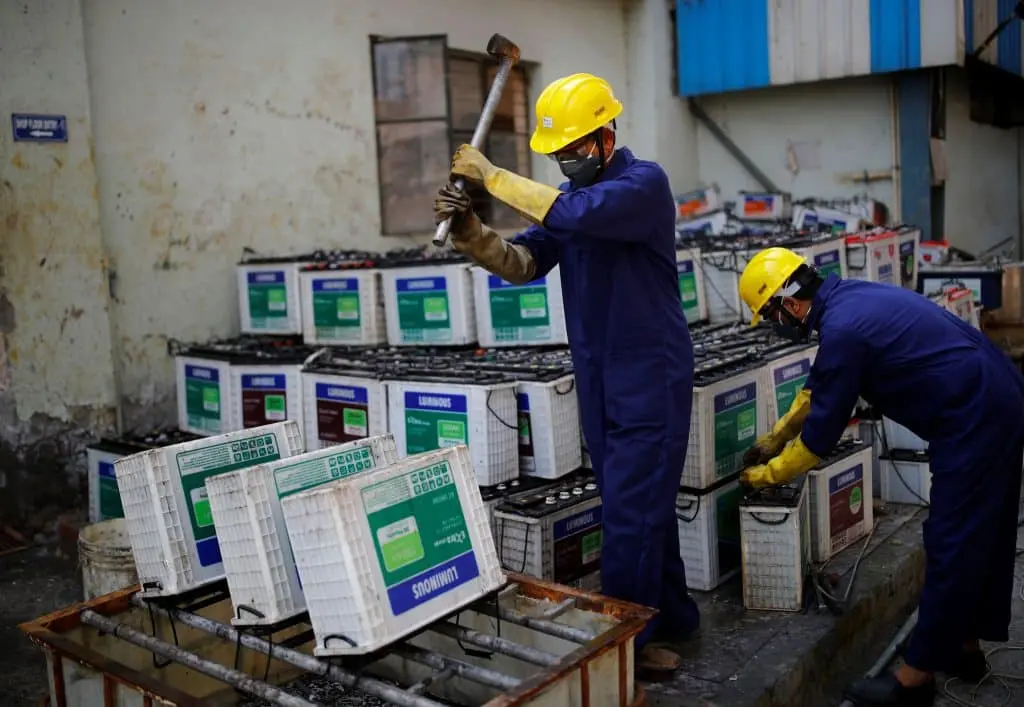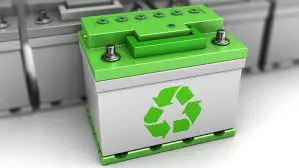Lead-acid batteries are a cornerstone of modern convenience and industry, powering everything from cars to backup systems for critical infrastructure. However, their disposal is a significant concern for eco-conscious consumers and businesses alike due to the toxic materials they contain. This blog post will delve into the importance of recycling lead-acid batteries, explore the environmental repercussions of improper disposal, and offer practical solutions for responsible recycling.
Understanding Lead-Acid Batteries
Composition
Lead-acid batteries consist of lead plates submerged in sulfuric acid. They are renowned for their reliability and cost-effectiveness, making them ubiquitous in automotive, industrial, and standby power applications.
How They Work
By converting chemical energy into electrical energy, lead-acid batteries function through a series of chemical reactions between lead plates and sulfuric acid. When discharging, the lead dioxide on the positive plate and the lead on the negative plate react with the sulphuric acid to create an electric current.
Lifespan
Lead-acid batteries typically range from 3 to 5 years, depending on usage and maintenance. As they age, their efficiency decreases, necessitating proper disposal or recycling.
- Refrigerator Repair Tips: Calling a technician in Winter Garden
- Choosing the Right Encoder in CNC Machine Applications
Common Uses
- Automobiles (car batteries)
- Uninterruptible Power Supplies (UPS)
- Marine applications
- Solar energy storage
- Industrial machinery
The Environmental Impact of Improper Disposal
Improper disposal of lead-acid batteries poses severe environmental risks. When these batteries end up in landfills, the lead can leach into the soil and groundwater, contaminating drinking water sources and harming wildlife. Moreover, the sulphuric acid can cause soil acidification, disrupting local ecosystems. Air pollution is another concern, as incinerating lead-acid batteries releases toxic fumes.
Responsible Disposal and Recycling Options
Drop-Off Points
Many communities offer designated drop-off points for hazardous waste, including lead-acid batteries. Municipal recycling centers, automotive shops, and some retail stores often accept these batteries for safe disposal.

Battery Retailers
Some battery retailers offer take-back programs where consumers can return old batteries when purchasing new ones. This ensures the batteries are handled by professionals who follow stringent recycling protocols.
Specialized Recycling Companies
Specialized recycling companies focus on handling hazardous waste, including lead-acid batteries. These companies often provide pick-up services for businesses and large quantities, ensuring safe transport to recycling facilities. The top 5 companies in the lead-acid battery recycling market are Exide Technologies, Umicore, Retriev Technologies, Gravita India Ltd., Call2Recyle, Gravita India Limited, Battery Solutions, and Aqua Metals.
The Process of Recycling Lead-Acid Batteries
Collection
The first step in recycling is the collection of used batteries. This can be done through community drop-off points, take-back programs, or specialized recycling services.
Transport
Once collected, the batteries are transported to recycling facilities. It is crucial that during transport, the batteries are handled carefully to prevent leaks and spills.
Refining
At the recycling facility, the batteries undergo a series of processes to extract usable materials:
- Breaking: The batteries are broken apart in a hammer mill.
- Separation: The fragments are separated into lead, plastic, and acid.
- Refining: The lead is melted and purified, the plastic is washed and pelletized, and the acid is neutralized or converted into sodium sulfate for use in detergents.
The Role of Consumers and Businesses in Recycling Lead-Acid Batteries
Both consumers and businesses play a vital role in effectively recycling lead-acid batteries. By actively participating in recycling programs and adhering to best practices in battery disposal, they help ensure that hazardous materials do not end up in landfills, reducing environmental pollution.
Moreover, their efforts contribute to the sustainable recovery of valuable resources, lessening the demand for raw materials and supporting a circular economy. Through shared responsibility and conscientious behavior, consumers and businesses can significantly impact the success of lead acid battery recycling initiatives.
Consumers
Eco-conscious consumers play a vital role in promoting battery recycling by:
- Educating themselves about proper disposal methods.
- Participating in take-back programs.
- Choosing products from companies with strong recycling policies.
Businesses
Businesses can lead by example:
- Implementing battery recycling policies.
- Partnering with specialized recycling companies.
- Raising awareness about the importance of responsible disposal among employees and customers.

Case Studies of Successful Battery Recycling Initiatives
Case Study 1: Johnson Controls
Johnson Controls, a global leader in automotive batteries, operates the world’s largest network of lead-acid battery recycling centers. Their initiatives have resulted in a recycling rate of more than 99% for lead-acid batteries.
- Steps in Electrical Failure Analysis for High-Speed Communication
- What Is the Internet of Things With Examples?
Case Study 2: Call2Recycle
Call2Recycle is a non-profit organization that offers battery collection and recycling programs across North America. Their efforts have significantly increased the number of batteries recycled, diverting millions of pounds of hazardous waste from landfills.
Conclusion
Recycling lead-acid batteries is not just an environmental necessity; it is a responsibility that falls on both consumers and businesses. By understanding the composition and risks associated with these batteries, we can take informed steps towards their proper disposal and recycling. Together, we can mitigate environmental harm and promote a sustainable future.
Encourage your friends, family, and colleagues to participate in responsible battery disposal and recycling. Every effort counts, and together, we can make a significant impact.
For more information on where to recycle lead-acid batteries or to learn more about the process, please contact your local recycling center or a specialized recycling company.
Short Question Answers:
Can you put old batteries in the bin?
Lead-acid batteries should never be disposed of in regular household bins. They contain toxic materials that can harm the environment and should be taken to designated recycling or disposal centers.
Should lead-acid batteries be recycled?
Absolutely. Recycling lead-acid batteries helps recover valuable materials and prevents harmful substances from contaminating the environment.
Can lead-acid batteries be scrapped?
Yes, lead-acid batteries can be scrapped, but they must be handled by certified recycling facilities that follow strict guidelines to ensure safe and efficient material recovery.